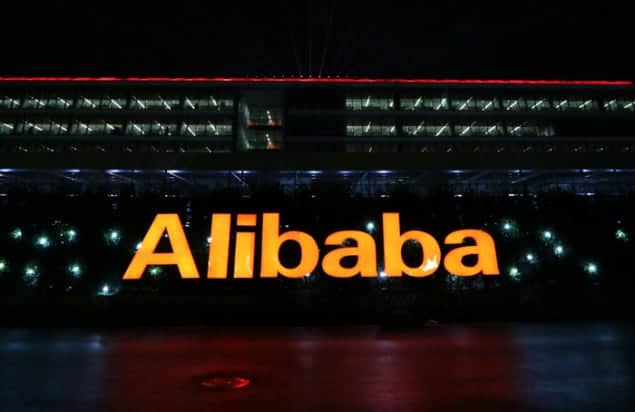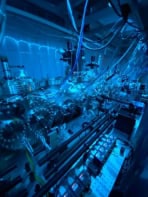
The global effort to develop practical quantum computers got a boost this month with the inauguration of a dedicated laboratory in Shanghai, China. The new lab – a joint venture between the Chinese Academy of Sciences (CAS) and the Chinese online retail giant Alibaba – aims to develop a general-purpose prototype quantum computer by 2030.
The new CAS–Alibaba Quantum Computing Laboratory’s interim goals include the coherent manipulation of 30 quantum bits (qubits) by 2020, and quantum simulation with calculation speeds equivalent to those achieved by today’s fastest supercomputers by 2025. This ambitious series of five-year plans will be supported by an annual injection of $5m from Alibaba’s cloud-computing subsidiary, Aliyun, over the next 15 years.
Novel partnership
Chaoyang Lu, a member of the new lab, which is located in the centre of Shanghai, acknowledged that this goal is “extremely challenging”, citing the massive technical difficulties involved in making quantum computing a reality. Lu, who is also a quantum physicist at the University of Science and Technology of China (USTC), noted that this type of partnership is new in China, calling it the first “large-scale investment in fundamental science” by a privately run business.
The lab’s director and chief scientist, Jianwei Pan, told physicsworld.com that the money from Aliyun will be earmarked for recruitment, while annual operating costs (which he estimates at a few tens of millions of US dollars) will come from government agencies, including CAS. Eventually, he said, the lab could become home to “some 100 scientists” from around the globe.
“The CAS–Alibaba Quantum Computing Laboratory will undertake frontier research on systems that appear the most promising in realizing the practical applications of quantum computing. The laboratory will combine the technical advantages of Aliyun in classical calculation algorithms, structures and cloud computing with those of CAS in quantum computing, quantum analogue computing and quantum artificial intelligence, so as to break the bottlenecks of Moore’s Law and classical computing,” says Pan.
Big data
A co-operation agreement was signed by the CAS president, Chunli Bai, and Alibaba’s chief technical officer, Jian Wang, at the lab’s official inauguration on 30 July. According to Wang, the company’s investment in advancing quantum computing and its related technologies “reflects the scale and clarity of [Alibaba’s] long-term vision to collaborate with partners in an ecosystem modelled towards the sustained development of the economy and society. New discoveries in information security and computing capacity based on quantum computing could be as significant in the future as big data technologies are today.” Managers at the new facility will report directly to Aliyun, and will also have the option to buy any intellectual property that stems from the lab’s research.
“As an Internet company, we have been paying close attention to upcoming computing technologies,” says Shuanlin Liu, the chief architect of Alibaba Infrastructure Service at Aliyun. “With CAS’s prowess in quantum physics and our strength in cloud computing, we are pretty confident that the lab’s five-year plans will work out in time.”



